Buy South Park: The Fractured But Whole
Ubisoft has always had a special relationship with Nintendo. The publisher usually supported their systems, with some minor exclusives and ports where possible. While Ubisoft's overall footprint on the Switch is still rather small, the excellent cooperation on Mario + Rabbids: Kingdom Battle, which ran on Ubisoft's Snowdrop engine, promised that there would be more. Six months after the title's original release on PC, PS4 and Xbox One, a Switch port is now available of South Park: The Fractured But Whole. After spending a week with the game, we were able to observe how well South Park works on the Switch. Unfortunately, it's not great.
After the first well-received RPG, South Park: The Stick of Truth, Ubisoft started working on the sequel almost immediately. Developer Obsidian wasn't available to continue the work, so Ubisoft San Francisco took over and moved in another thematic direction: superheroes. The story begins after The Stick of Truth, with many of the South Park kids still playing in a fantasy setting until Cartman "the Coon" decides it's time to change to Coon and Friends and the Freedom Pals, their rivaling superhero franchises. We play as the new kid, who's blessed with fantastical fart powers — this is South Park, after all — and we join the ranks to solve the mystery of a missing cat. This supposedly mundane task evolves into a weird conspiracy plot that takes us across South Park to flex our superhero muscles — and fart a lot.
The plot is derived from "South Park" episodes about Coon and Friends, Professor Chaos, and the Freedom Pals. You can watch those episodes if you're interested in some background, but as long as you're familiar with South Park, you can jump in to the game without an introduction. The writing is similar to the humor that fans know and love, but it also feels more methodical. There are some hilariously weird set pieces, but the game feels less daring than The Stick of Truth. The story in Fractured is enjoyable, but it's a mixed bag with fewer high notes than we've come to expect. On a more positive note, the writing does a better job of conveying that we're seeing kids use their imagination and play games together.
The overall structure of the game hasn't changed, and it can be described as a simple RPG experience. Once the story has been set up, we can explore South Park at our leisure, and there are many quests to complete all over town. There is also a ton of loot to find, which fuels a new crafting system that's central to the experience. If you start Fractured by venturing out to discover what's going on around town, you'll find that nothing has really changed. It's still South Park, with some minor modifications.
In presenting us with a largely unaltered world, the game has toned down the sense of discovery from the first game. It also doesn't help that most houses in town have the same layout. In terms of collectibles, there's a variety of chests with costumes, Memberberries and toilets. Some collectibles are hidden and can only be accessed with the help of a superhero buddy. This is similar in The Stick of Truth, but the repetitive layouts make exploration less fun this time around. It feels like a paint-by-numbers approach that's more of an expansion than an actual sequel.
The combat has changed in Fractured. It still features a round-based system, but it's coupled with grid-based positioning and movement, similar to games like Banner Saga and Lost Sphear. We still take turns, but we can now move and attack during each turn. Attacks have an area of effect and can inflict direct physical and optional elementary damage. Some attacks may need to charge for a round before they can be executed. This opens up a few more combat possibilities, especially in boss fights. It's not a deep system, and you can get by without using deliberate tactics. Some boss fights may require a plan, but they're generally not very difficult, which is great for accessibility but unfortunate when you're seeking a challenge.
By keeping things simple, it's clear that Fractured doesn't want the combat to be intimidating. Compared to The Stick of Truth, though, it doesn't feel like a step forward. QTEs to perform critical attacks or fill your super-attack meter are still part of the formula, but they feel superfluous because it's just a single button press. It's not the biggest gripe, but it feels like a missed opportunity to add some user engagement.
When in battle, every character has three basic attacks and one super-attack that may be executed when the meter is full. Our allies' attacks remain the same throughout the game, but our own attacks can be exchanged based on our classes. If we want to mix it up, we can exchange party members before or between combat encounters. There are a lot of allies to choose from, but by the end of the game, their super attacks are awfully familiar since they all play the same cut scene. The summons from The Stick of Truth are back. In the previous game, we were able to summon one of four townspeople to help us, such as Mr. Slave, who swallowed enemies with his anus. There are four new summonses in this game, but they seem bland in comparison.
In terms of character progression and items, Fractured goes in a new direction, and the change may not be as welcome as the combat system. At the outset, we can pick one of three character classes to define the attacks we can perform in battle. By the end of the game, we can choose three out of 10 classes to use. One of the more welcome changes is that we can mix, match, and change classes throughout the game, either offering experimentation or an incentive to replay — in case you're into that sort of thing.
While we have experience points and level up within the game, our level progression does not directly translate into abilities or strength. Abilities are determined by our class, there are no weapons, and clothing only has aesthetic value. What determines our power? Artifacts. Throughout the game, we can find or craft artifacts that grant might. With each level, we receive a new slot to equip attributes that add to our total might, granting us perks such as increased damage, health and strength. We also get a DNA slot that improves certain classes.
While this system works, it has a few shortcomings. I don't see why a superhero wouldn't have access to some weapons. It's also a letdown that the costumes are purely cosmetic. Similarly, experimentation within the game is limited to exchanging a few artifacts. It works, but it feels like an unnecessary limitation in an RPG.
The last part of the puzzle is crafting. Anything we use and need can be crafted, including items we use in combat, such as artifacts, costumes, items and potions. Items only need one or two major components, and all other loot is conveniently summarized in groups, such as scrap. If you're constantly looking for loot, you'll never run out of crafting materials, and if you do, you can pick up materials for cheap in one of the countless vendors around town.
The overall atmosphere in Fractured is as great as expected. The look and feel of the world are handled like an extended "South Park" episode, with ridiculously epic superhero music in the background, great voice acting and some funny cameos. However, the Switch version suffers severely from performance issues and bugs.
We finished the main quest line, but we encountered several significant bugs, even after installing the 3 GB day-one patch. A side mission with the character Call Girl, namely "(You Can) Call On Me," always ends in an infinite loading screen that can only be terminated by closing the application. It's unclear whether this issue is on Nintendo's or Ubisoft's part, but it hinders progression. A few other bugs had us lose our autosave files, and our character's clothing reset to the default or to wearing a crown and cape. This happened on two separate occasions, but I was unable to replicate the issue in the same location. There are some minor bugs, like no audio in cut scenes and menus disappearing or failing to load.
Apart from bugs, the game runs fine at slightly less than 1080p/720p 30 FPS in docked/handheld mode. The frame rate dips noticeably in some areas and fights, but Fractured isn't a fast-paced game, so this doesn't have a huge impact. However, the loading times vary significantly. Sometimes they're nonexistent, but in most cases, even changing a room can prompt a loading screen of up to 20 seconds. Fights sometimes take a while to load, testing your patience. It's not surprising that there are more loading times on a weaker console when porting a game, but it's unbearable that it occurs between small, interlinked areas.
The last elephant in the room is the pricing and features. Initial versions of Fractured on other systems included The Stick of Truth, but the Switch version only contains Fractured. Both games run on very different engines, and they couldn't be ported together easily. What we have on the Switch is a delayed, full-priced port with subpar performance. It would've been nice to get a few extra incentives, such as a few costumes or additional challenges like those in the first part of the DLC, which has to be purchased separately. Fractured feels like a rushed port that was intended as a cash grab rather than a sincere attempt. While the game remains largely the same entertaining piece of software, it falls short of expectations. Yes, it's portable, but it's not running very well.
South Park: The Fractured But Whole on the Switch is a flawed game with bugs, small performance issues, and long loading times. While the game is a fun but weaker successor to The Stick of Truth, it doesn't look great in its current state. Even with its flaws, it's still an enjoyable journey, but it's not worth the high price tag until most of the performance issues are addressed in an upcoming patch.
Score: 6.0/10
More articles about South Park: The Fractured but Whole


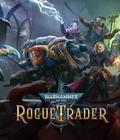
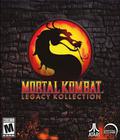
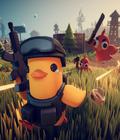
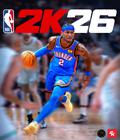



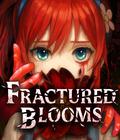

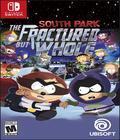 With crime on the rise in South Park, the town needs new heroes to rise! Eric Cartman seizes the opportunity to save the town and create the best superhero franchise ever. Players become a member of Coon & Friends and fight for fame and their place beside the other kids.
With crime on the rise in South Park, the town needs new heroes to rise! Eric Cartman seizes the opportunity to save the town and create the best superhero franchise ever. Players become a member of Coon & Friends and fight for fame and their place beside the other kids.








































